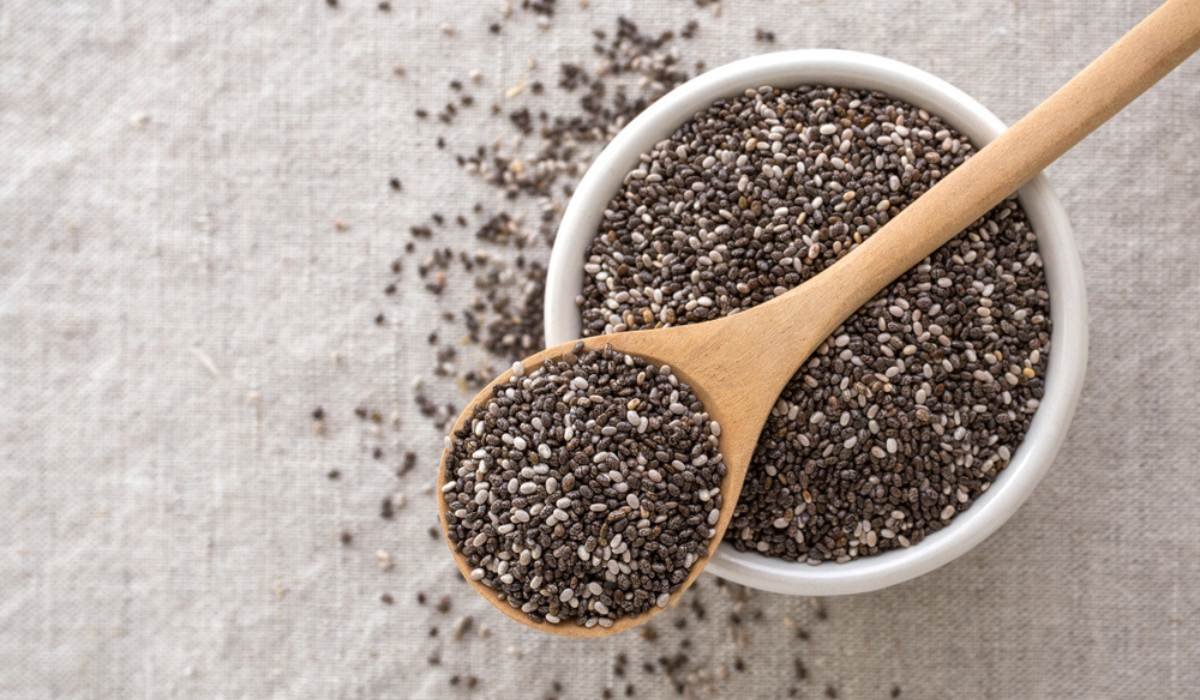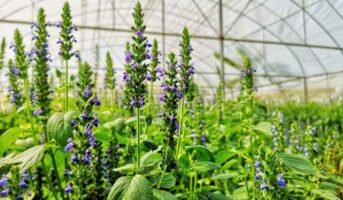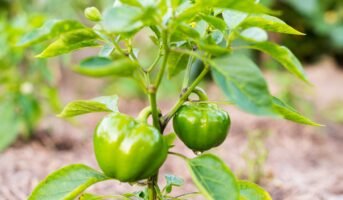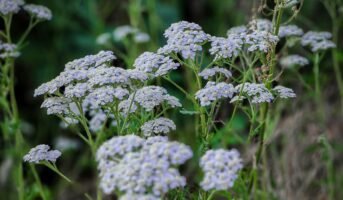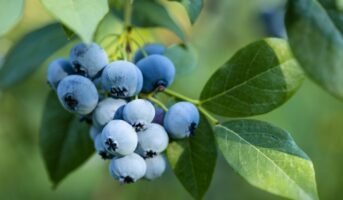In India, the obsession with Chia seeds may be growing now, but in the past 40 years, these tiny super-seeds have been busy catching a health freak’s attention in a dramatic on-now-off-now manner.
Even as they enjoy great historical associations in Mexican and Guatemalan food traditions, they have continued to make comebacks as a superfood. Such is the latest rage about these small seeds that have received high popularity that a report by Grand View Research predicts that the market for chia seeds is expected to grow by more than 22% per year between 2019 and 2025.
This brings us to the question: is chia seed worth the hype? Do its benefits justify the epic popularity it has gained on social media as the go-to option to manage weight and keep a healthy heart? We find out the truth about chia seeds in this guide.
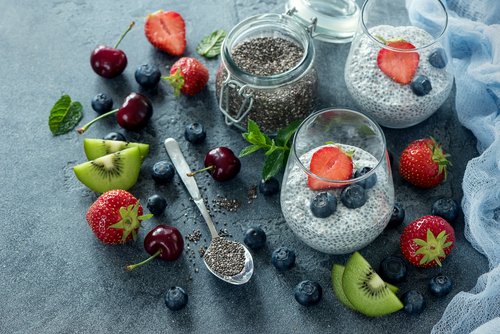
See also: What are Sabja seeds and how beneficial are they for you?
Chia seed: Key facts
| Botanical name: Salvia Hispanica
Origin: Central and South America Family: Mint Common names: Salba chia, Mexican chia, chia seed Producers: Mexico, Guatemala, Peru, Argentina, Australia and the US |


Chia seeds: Real benefits
To understand the actual benefits of chia seeds, we must look at their nutritional makeup.
Nutritional makeup of 2 tablespoons of chia seed
| Calories | 140 |
| Protein | 4 gm |
| Fibre | 11 gm |
| Saturated fat | 7 gm |
| Calcium | 18% of the average daily intake |
| Carbohydrates | 12 gm |
| Sugar | 0 gm |
A flowering plant from the mint family, chia seeds are a complete protein. This means that they contain all nine essential amino acids that cannot be made by the body. Considered critical for the prevention of heart diseases, chia seed is among the rare food items that have omega-3 fatty acids known as alpha-linolenic acid (ALA). In fact, one sitting of chia seeds carries double the daily dose recommended for the human body.
These incredibly versatile black and white seeds, which are largely flavourless, have replaced eggs in baking goods for vegan diets.
According to the National Library of Medicine, ‘chia seed is a potential source of antioxidants with the presence of chlorogenic acid, caffeic acid, myricetin, quercetin and kaempferol, which are believed to have cardiac, hepatic protective effects, anti-ageing and anti-carcinogenic characteristics’.
Research shows that chia seeds are effective against diabetes, dyslipidaemia and hypertension. It acts as an anti-inflammatory, antioxidant, anti-blood clotting, laxative, antidepressant, antianxiety, analgesic, vision and immunity improver.
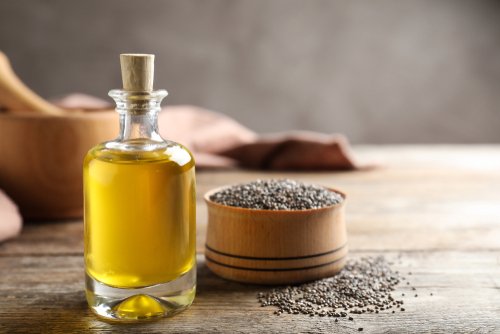
See also: What is Black Gram and what are its many benefits?
Chia seeds: The risk
According to New York University nutrition professor Marion Nestle, the term “superfood” is a “advertising concept” and a “nutritionally meaningless term.” Keeping that in mind, it makes more sense to know the possible risks associated with chia seed consumption.
Always soak them
Dry chia seeds can cause choking. Always use them in their soaked form if you plan to have them standalone.
Use in combination
Highly potent chia seeds must be consumed in combination with other food or beverages. Consuming chia seeds beyond a limit – more than several grams in one sitting – would invariably cause indigestion, bloating, cramping and diarrhoea.
Use it as a part of the diet; not whole
Chia seeds are no replacement for your regular diet, their highly rich nutritional value notwithstanding. Experts recommend relying on omega-3-rich food to meet your body’s requirements rather than completely relying on chia seeds.
Digestion issues
The high fibre content – 2 tablespoons of chia seeds have around 10 gm of dietary fibre, which is more than twice that of an apple – could lead to various digestion-related issues, including indigestion, bloating, gas and diarrhoea. It would flare up underlying bowel-related complications, including irritable bowel syndrome.
No proven effectiveness in treating cancer
While it is often deduced that chia seed helps against certain types of cancer and cognitive decline, there is no conclusive research to prove it.
Allergy
Chia seeds may cause allergies, such as face swelling, itching of the tongue and upchuck reflux. This is, however, quite rare.
Not ideal for diabetic people
Those who take medication for diabetes and hypertension must avoid chia seeds as they may cause severe depletion of blood sugar.
No remedy for weight loss
The gelation of chia seeds tends to expand, making you feel quite full. However, there is no conclusive research that proves that chia seeds are effective in weight loss.
How to store chia seeds?
Scientists recommending chia seed storage in cool and dry place in plastic, glass or paper containers. They would last you up to 5 years when stored in a refrigerator is in a glass mason jar.
How to check if chia seeds have gone bad?
Determining if chia seeds have gone bad involves checking for signs such as oxidation, presence of pantry bugs, slimy texture, mold growth or clumping due to moisture. Additionally, they might taste rancid or bitter, and emit a scent similar to nail polish remover.
Can I consume expired chia seeds?
You can consume chia seeds beyond their expiration date if they don’t exhibit any signs of spoilage like a foul odor, mold, clumping, or pantry bugs. However, if you anticipate these issues arising, it’s probably better to discard them and opt for fresh ones.
FAQs
What is chia?
Chia is an oil seed.
What is the meaning of chia?
The word ‘chia’ is derived from the Spanish word ‘chian’, which means oily.
What is the history of chia seed production?
Chia seed has been a part of human food for about 5,500 years. It was used by Aztecs and Mayans to prepare medicines and food.
What are the main nutrients in chia seeds?
The main nutrients in chia seeds include omega-3 fatty acids, fibre, protein, calcium, phosphorus and zinc.

An alumna of the Indian Institute of Mass Communication, Dhenkanal, Sunita Mishra brings over 16 years of expertise to the fields of legal matters, financial insights, and property market trends. Recognised for her ability to elucidate complex topics, her articles serve as a go-to resource for home buyers navigating intricate subjects. Through her extensive career, she has been associated with esteemed organisations like the Financial Express, Hindustan Times, Network18, All India Radio, and Business Standard.
In addition to her professional accomplishments, Sunita holds an MA degree in Sanskrit, with a specialisation in Indian Philosophy, from Delhi University. Outside of her work schedule, she likes to unwind by practising Yoga, and pursues her passion for travel.
[email protected]
